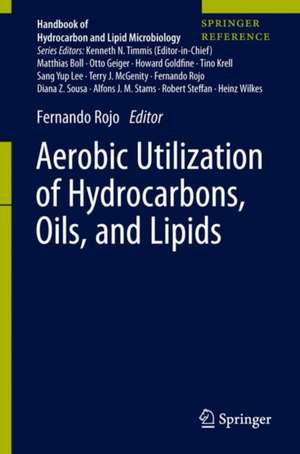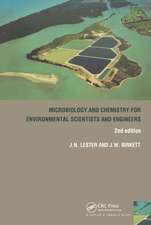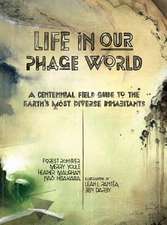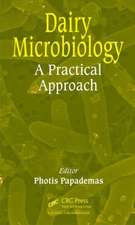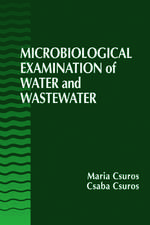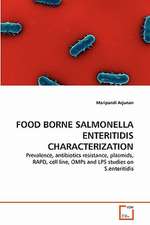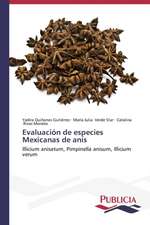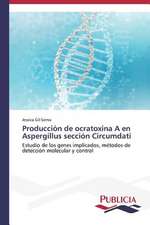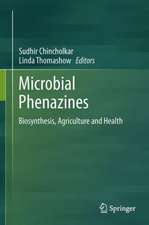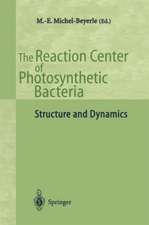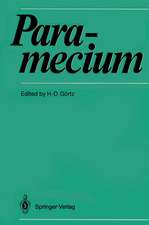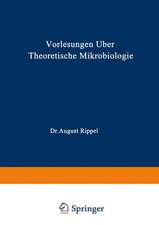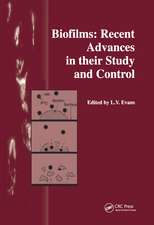Aerobic Utilization of Hydrocarbons, Oils, and Lipids: Handbook of Hydrocarbon and Lipid Microbiology
Editat de Fernando Rojoen Limba Engleză Hardback – 31 ian 2019
Preț: 1593.72 lei
Preț vechi: 1943.56 lei
-18% Nou
Puncte Express: 2391
Preț estimativ în valută:
304.99€ • 331.18$ • 256.20£
304.99€ • 331.18$ • 256.20£
Carte disponibilă
Livrare economică 01-15 aprilie
Preluare comenzi: 021 569.72.76
Specificații
ISBN-13: 9783319504179
ISBN-10: 3319504177
Pagini: 700
Ilustrații: XIX, 859 p. 149 illus., 43 illus. in color.
Dimensiuni: 155 x 235 x 40 mm
Greutate: 1.86 kg
Ediția:1st ed. 2019
Editura: Springer International Publishing
Colecția Springer
Seria Handbook of Hydrocarbon and Lipid Microbiology
Locul publicării:Cham, Switzerland
ISBN-10: 3319504177
Pagini: 700
Ilustrații: XIX, 859 p. 149 illus., 43 illus. in color.
Dimensiuni: 155 x 235 x 40 mm
Greutate: 1.86 kg
Ediția:1st ed. 2019
Editura: Springer International Publishing
Colecția Springer
Seria Handbook of Hydrocarbon and Lipid Microbiology
Locul publicării:Cham, Switzerland
Cuprins
A Genomic View of the Catabolism of Aromatic Compounds in Pseudomonas.- A Genomic View of the Catabolism of Short Chain Alkanes.- Aerobic Degradation of Aromatic Hydrocarbons.- Aerobic Degradation of Aromatic Hydrocarbons: Enzyme Structures and Catalytic Mechanisms.- Aerobic Degradation of Chloroaromatics.- Aerobic Degradation of Gasoline Ether Oxygenates.- Aerobic Degradation of Halogenated Aliphatics.- Biochemistry and Molecular Biology of Methane Monooxygenase.- Biosynthesis, Insertion and Function of Fe-S Cofactors.- Biosynthesis, Insertion and Function of Flavin Cofactors.- Biosynthesis, Insertion and Function of haem-iron Prosthetic Groups.- Computational Framework for Integration of Lipidomics Data into Metabolic Pathways.- Degradation of Dimethylsulfoniopropionate (DMSP) and Dimethylsulfide (DMS).- Degradation of Rubber/Polyisoprene.- Diversity and Common Principles in Enzymatic Activation of Hydrocarbons: An Introduction.- Energetic and Other Quantitative Aspects of MicrobialHydrocarbon Utilization: An Introduction:.- Enzymes for Aerobic Degradation of Alkanes in Bacteria.- Enzymes for Aerobic Degradation of Alkanes in Yeasts.- Evolution of New Catabolic Functions Through Gene Assembly by Mobile Genetic Elements.- Experimental Evolution of Novel Regulatory Activities in Response to Hydrocarbons and Related Chemicals.- Functional Gene Diversity, Biogeography, Dynamics.- Genetic Features and Regulation of n-Alkane Metabolism in Bacteria.- Genetic Features and Regulation of n-Alkane Metabolism in Yeasts.- Genetic Features of Methylotrophs.- Genetics and Functional Genomics of Aerobic Degradation of Hydrocarbons: An Introduction.- Genetics and Molecular Features of Bacterial Dimethylsulfoniopropionate (DMSP) and Dimethylsulfide (DMS) Transformations.- Genetics of Biphenyl Biodegradation and Co-Metabolism of PCBs.- Genetics of Rubber/Polyisoprene Degradation.- Genetics and Ecology of Isoprene Degradation.- Genomic View of Mycobacterial High Molecular Weight Polycyclic Aromatic Hydrocarbon Degradation.- Global Aerobic Degradation of Hydrocarbons in Aquatic Systems.- Global Aerobic Degradation of Hydrocarbons in Terrestrial Systems.- Global Consequences of the Microbial Production and Consumption of Inorganic and Organic Sulfur Compounds.- Key Features of Aerobic Hydrocarbon Biodegrader Genomes.- Lipid Degradation - Lipid Cycles.- Lipolytic Enzymes from Bacteria.- Lipolytic Enzymes from Yeasts.- Metabolism of Steroids.- Oxidative Inactivation of Ring-Cleavage Extradiol Dioxygenases: Mechanism and Ferredoxin-Mediated Reactivation.- Pathways for the Degradation of Fatty Acids in Bacteria.- Phylogenomics of Aerobic Bacterial Degradation of Aromatics.- Physiology and Biochemistry of the Aerobic Methane Oxidizing Bacteria.- Potential for Microbial Interventions to Reduce Global Warming.- Rational Construction of Bacterial Strains with New/Improved Catabolic Capabilities for the Efficient Breakdown of Environmental Pollutants.- Regulation of the Degradation of Fatty Acids in Bacteria.- Regulation of the Degradation of Fatty Acids in Yeast.- Stereochemistry of Hydrocarbon-transforming Enzyme Reactions.- Structure-Function Relationships and Engineering of Haloalkane Dehalogenases.- Transcriptional Control of the TOL Plasmid Pathways.
Notă biografică
Fernando Rojo studied biochemistry and molecular biology and obtained his Ph.D. degree at the Autonomous University of Madrid, Spain. He undertook postdoctoral training at the Department of Medical Biochemistry of the University of Geneva, Switzerland, and at the Center of Molecular Biology “Severo Ochoa” (CBMSO-CSIC), Madrid, Spain. His work has been devoted to the analysis and modification of bacterial pathways for the degradation of hydrocarbons and toxic compounds and to the elucidation of molecular mechanisms of gene expression in bacteria. During the last 20 years, his research group has been focused on the analysis of the global regulation networks that allow coordinating metabolism in pseudomonads. He has published over 130 papers in international journals. He is currently Research Professor of CSIC and Director of the National Centre of Biotechnology (CNB-CSIC).
Caracteristici
Maximizes reader insights into biochemistry and genetics of aerobic degradation of hydrocarbons and lipids by bacteria and yeasts Covers biodegradation of contaminants by microorganisms Summarizes the latest study on biochemistry of aerobic degradation of hydrocarbons and lipids Contains also genetics of aerobic degradation of hydrocarbons and lipids Focuses on the latest discoveries of recent years Includes supplementary material: sn.pub/extras
